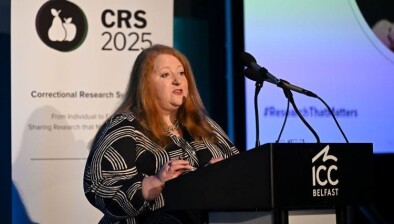NI High Court: Prisoner was not discriminated against in having counselling leave request denied

Northern Ireland’s High Court has determined that a prisoner’s request to attend external counselling services during the last 12 months of his sentence was not irrationally or discriminatorily denied, even if the scheme in place wasn’t “the best way to provide for resettlement”.

About this case:
- Citation:[2023] NIKB 38
- Judgment:
- Court:NI High Court
- Judge:Judge Adrian Colton QC
Background
In 2015, the applicant was convicted of attempted murder and intentionally encouraging or assisting a robbery. He received a sentence of 15 years and six months, with seven years and nine months to be served on licence. His release date is 28 May 2023.
In 2022, he sought temporary release from prison to avail of counselling opportunities which would assist in his rehabilitation into society. None of these requests were granted.
In June 2022 his solicitors sent pre-action protocol letters challenging the refusal to grant the applicant temporary release. The leave scheme involved had been suspended due to the Covid-19 pandemic, and in a reply the proposed respondent stated that a new leave scheme was being progressed.
In September 2022, a second letter was sent seeking release to enable the applicant to engage in counselling offered by the Commissioner for the Survivors of Institutional Childhood Abuse.
In November 2022, a third letter sought release for the purposes of the applicant undertaking counselling services, as the applicant had been informed by NEXUS that the waiting time for commencement of counselling would be 10 months.
The respondent replied, noting that temporary release days are granted on a discretionary basis and clarifying that this was now being governed by the pilot transitional leave scheme which had been introduced on 1 November 2022.
A central feature of this new pilot scheme was: “If transition leave is granted, the days granted will be taken as a block period of leave immediately preceding the prisoner’s custody expiry date (CED/EDR) […] All eligible sentenced prisoners will be able to apply to be considered eight weeks prior to their CED/EDR. Encouragement should be given to applying as early as possible.”
This new approach was the focus of this challenge. The 2022 scheme only permitted release in a block of consecutive days at the end of a prisoner’s sentence, but not spread out over a number of different dates in the final 12 months of the sentence, as had been the case under the 2005 scheme.
The applicant argued that the prison service unlawfully fettered its discretion, that the scheme was irrational and that there had been a lack of equal treatment under the Human Rights Act 1998.
The relevant schemes
The maximum period of temporary leave permitted by the 2005 scheme depended on the duration of the sentence. The 2005 scheme provided for prisoners to be released for individual periods in the final 12 months of their sentence.
The 2020 scheme was put into operation during the pandemic. It was always intended to be temporary and to be replaced. One of the changes introduced was the provision of release for a block of days at the end of the prisoner’s sentence. Initially, this change was put into operation mainly as an infection control measure.
However, the Northern Ireland Prison Service (NIPS) found that providing a block of leave at the end of the sentence improved resettlement as prisoners could, for example, find a lease, a new GP or counselling services just prior to release.
NIPS therefore decided to incorporate this block leave approach into the November 2022 pilot scheme, which was the subject of the challenge.
The planned 2023 scheme will vary slightly from the approach taken in the 2022 scheme; the majority of leave will still be taken in a block period at the end of a prisoner’s custody period, but it may be possible for prisoners who have to serve more than one year in custody to secure release on some days within the last few months of their sentence prior to their block period. This approach is intended to assist prisoners with longer sentences in their transition back into the community, given that they have been in prison custody for lengthier periods.
The applicant argued that the scheme he was subjected to was not reasonable, and that the actions of NIPS did not pursue a legitimate aim and lacked proportionality.
Further, he argued unequal treatment, as he was treated differently from prisoners who served a determinate sentence prior to March 2020, who were able to avail of a “period” of temporary leave in the final 12 months of their sentence, to assist with resettlement.
Consideration
The court noted, firstly, that NIPS enjoys a very broad discretion, and that temporary release is not limited for the purposes of resettlement. It covers a broad range of scenarios, including medical treatment, employment, and compassionate release for significant family events, such as funerals or births.
The court here was also being asked to consider a policy governing the exercise of a statutory discretion. Therefore, the court’s jurisdiction was limited to conducting an audit of the lawfulness of the policy, not determining what it should contain. As such, the court had regard to the expertise of the policy makers.
The court accepted that a block release may not be the best way to provide for resettlement, but noted that it was not for the court to determine what the policy should be, and could only interfere with the policy under challenge if it contravened some public law principle.
Here, NIPS had explained the rationale behind the policy, and the court found: “On no account could it be considered to be irrational. To the contrary, the reasons put forward are rational.”
NIPS had not unlawfully fettered its discretion, but rather, had selected a policy based on rational aims and objectives, following its expertise and experience, which it will refine further under the 2023 scheme.
In considering the discrimination claim, the court found that this point failed on the basis that the applicant could not identify a comparator who was in an analogous position.
The applicant had been treated in the same way as every prisoner who was also subject to a determinate sentence.
Conclusion
Based on the court’s findings, the judge agreed with the respondent’s submissions that the applicant had not disclosed an arguable case with a reasonable prospect of success.
Accordingly, leave to apply for judicial review was refused.











